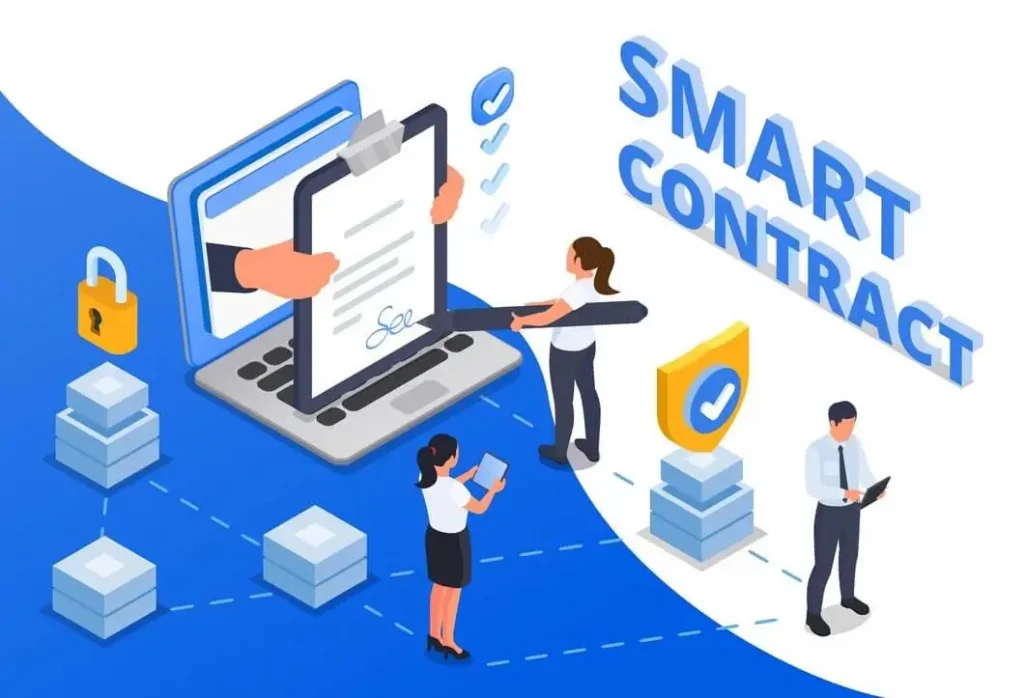
In DreamzIoT, our smart contract solution empowers businesses with secure, automated, and transparent transactions. Leveraging blockchain technology, our smart contracts execute predefined actions when specified conditions are met, eliminating the need for intermediaries and reducing the risk of fraud. With DreamzIoT’s user-friendly interface, businesses can easily create, deploy, and manage smart contracts tailored to their needs. The solution ensures data integrity and trust through decentralized consensus mechanisms. Smart contracts are self-executing contracts with the terms of the agreement directly written into code. They run on blockchain technology and automatically enforce, verify, or execute the terms of a contract when predefined conditions are met. Smart contracts eliminate the need for intermediaries, reduce the risk of fraud, and provide transparency.
Definition of Smart Contract:
- A computer program or transaction protocol.
- Automatically executes, controls, or documents events and actions.
- Operates based on the terms of a contract or agreement.
Objectives of Smart Contracts:
- Reduction of the need for trusted intermediaries.
- Lower arbitration costs and fraud losses.
- Minimization of malicious and accidental exceptions.
Association with Cryptocurrencies:
- Commonly linked with cryptocurrencies.
- Ethereum’s smart contracts considered fundamental for decentralized finance (DeFi) and NFT applications.
Historical Reference:
- Vending machines mentioned as the oldest technology similar to smart contract implementation.
Evolution from Bitcoin to Ethereum:
- Bitcoin protocol described as a weak version of smart contracts in the original Ethereum white paper (2014) by Vitalik Buterin.
- Ethereum proposed a stronger version using the Solidity language, which is Turing complete.
Programming Languages and Cryptocurrencies:
- Various cryptocurrencies support programming languages allowing advanced smart contracts between untrusted parties.
Smart Contract vs. Smart Legal Contract:
- Smart contract: Computer-based, automated execution of terms.
- Smart legal contract: Traditional, natural-language, legally-binding agreement with selected terms expressed and implemented in machine-readable code.





